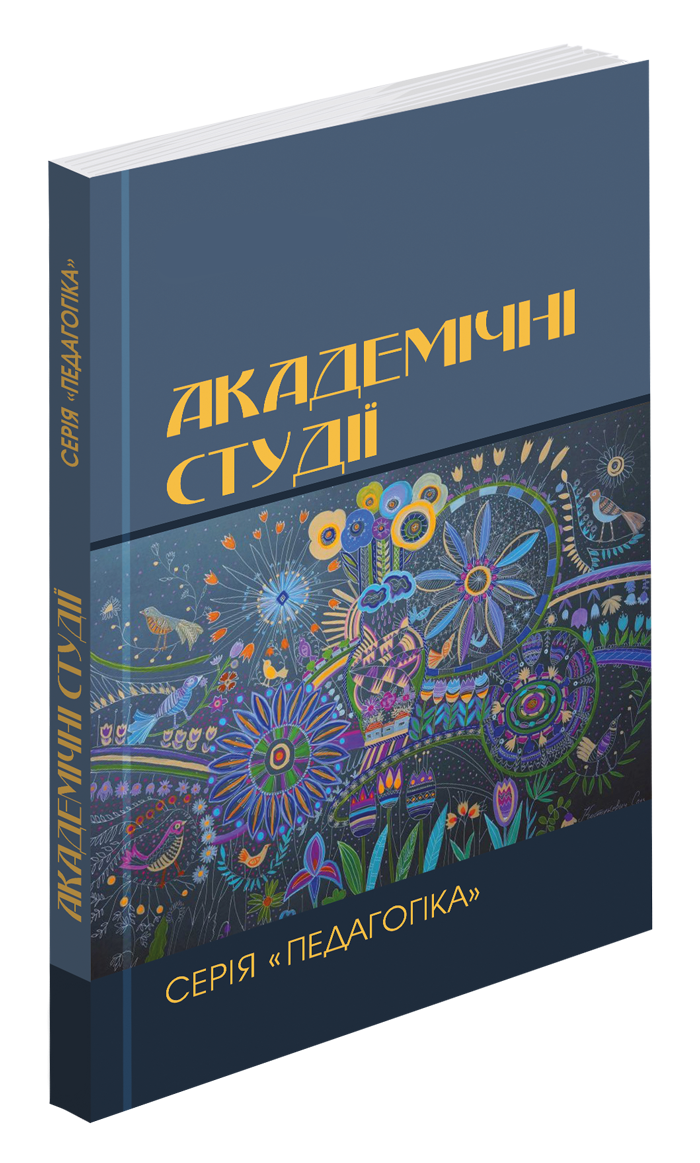Abstract
In the conditions of reforming the school education system, an important role belongs to the professionalism of the teacher in general and the physical culture teacher in particular. The success of the pedagogical activity of a modern teacher depends on the ability to establish constructive professional communication and interaction with all participants in the educational process. Hence, the relevance of the problem of forming communicative competence of a physical culture teacher of the new Ukrainian school is obvious.In the article, communicative competence is considered as a component of the professional competence of a future teacher and an indicator of pedagogical skill.The purpose of the article is to determine the features of the formation of professional competence in future physical culture teachers of the New Ukrainian School.Communicative competence is interpreted as the ability of a physical education teacher to effectively use verbal and non-verbal means of communication to achieve pedagogical goals, organize the educational process, maintain a positive emotional climate and establish interaction with students, colleagues and parents. Attention is focused on the conscious integrative understanding of the concepts of "communication" and "communicability" by students. The features of the formation of communicative competence in future physical education teachers of the National University of Kyiv are determined: taking into account the specifics of the content and functions of the academic discipline "physical education" in the new Ukrainian school; systematicity and continuity of the studied process.The role of propaedeutic practice in professional communication of a physical education teacher in general secondary education institutions is analyzed, which ensures the unity of teaching and practical training of students.Further research is required to develop a methodology and tools for diagnosing the formation of communicative competence in future physical education teachers of the National University of Kyiv.
References
Гавриляк Л.С. Комунікативна компетентність як складова професійної підготовки сучасного фахівця. Науковий журнал «ΛΌГOΣ. Мистецтво наукової думки». №3. 2019. С.70-73.
Грибан Г., Мичка І., Гарлінська А., Солодовник О., Чайка Ю., Пилипчук П., Денисовець А. Формування комунікативної компетентності вмайбутніх учителів фізичної культури під час освітнього процесу. Науковий часопис НПУ імені М. П. Драгоманова. Випуск 4 (149). 2022. С. 43-46.
Інструкція щодо організації практичної підготовки здобувачів вищої освіти Галузь знань: 01 Освіта/Педагогіка Спеціальність: 014 Середня освіта (Фізична культура) Предметна спеціальність: 014.11 Середня освіта (Фізична культура) Освітня кваліфікація: Бакалавр освіти (за предметною спеціальністю «Фізична культура») Професійна кваліфікація: Вчитель закладу загальної середньої освіти. URL: http://lpc.in.ua/
Нестеренко Л., Кучерова О. Визначення компонентів комунікативної компетентності.науково-педагогічних працівників. Актуальнi питання гуманiтарних наук. Вип 40, том 2. 2021. С.261-266
Скоромна М., Шарапова Г. Професійно-педагогічне спілкування як основа професійної діяльності майбутнього вчителя початкових класів. Людинознавчі студії. Серія «Педагогіка». 2023. № 48. С. 189-193.
Стасенко О. А. Формування професійної компетентності майбутніх учителів фізичної культури як запорука успішної педагогічної діяльності. Вісник Запорізького національного університету. Філологічні науки. № 1. 2021. С. 242-247.
Хома Тетяна, Кевпанич Василь. Комунікативна компетентність як складова педагогічної майстерності майбутніх учителів фізичної культури. Матеріали 77-ої підсумкової наукової конференції професорсько-викладацького складу факультету здоров’я та фізичного виховання ДВНЗ «Ужгородський національний університет». Уклад. д. пед. н. Стеблюк С.В., 27-28 лютого 2023 року. Ужгород, 2023. С.142-146.
Axiological Aspect of Professional Training of Future Pedagogues / V. Z. Antoniuk, N. I. Alendar, O. S. Bartkiv, O. V. Honcharuk, O. L. Durmanenko. Revista geintec-gestao inovacao e tecnologias. Scop us. Vol. 11. No. 4 (2021). P. 2481–2492. DOI: https://doi.org/10.47059/revistageintec.v11i4.2296 ISSN: 2237-0722

